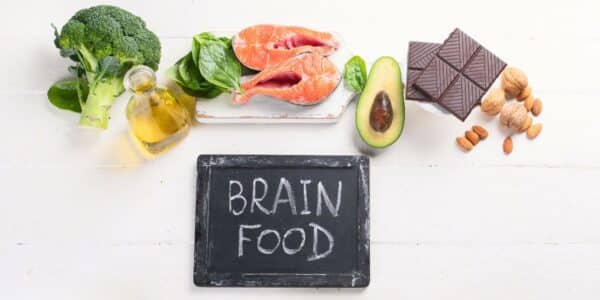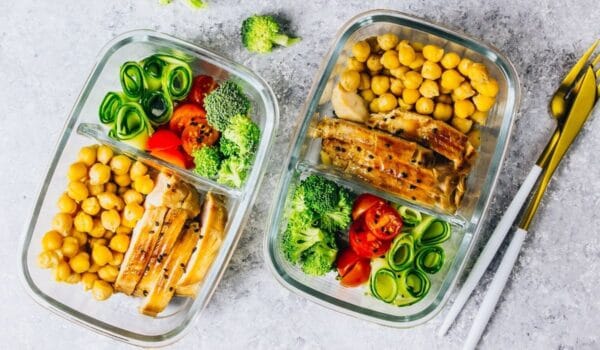Since being accepted into the MHSc Nutrition Communication program at Ryerson University, I have been asked a number of questions about the application process. FYI – I recently graduated from the Ryerson Nutrition & Food BASc program and will be starting the Master’s program in the Fall of 2020. I figured this would be a great opportunity to share my experience applying to Master’s programs in Canada, specifically Ontario. I hope you enjoy this post on How to Prepare for your Dietetic Internship or Master’s Application.
First off, it is important to make note that “internship programs” in Canada are now called “practicum programs”. This is due to the recent laws in Ontario that make it illegal to have unpaid interns, as highlighted in the employment standards legislation. There are exceptions to this legislation, such as if the internship provides training necessary for the profession (aka the dietetic competencies). For the sake of this article, I will call the practica “internships”, since I know that many people still refer to them this way.
The Process

Regardless of the program that you choose, both the Master’s and post-undergraduate Dietetic Internship programs have some similar application requirements. This often includes a resume, references, personal statement of interest, and, depending on the program, portfolio pieces.
As of this past year there is no longer a traditional internship/Master’s “match” in Canada. In the United States, this is referred to as the Dietetic Internship Centralized Application Services, or DICAS. I only mention this here since you have likely heard of it on social media (DICAS is a hot meme topic). As for Canadian students, you must now apply to each program individually in your final year of an accredited Nutrition Degree.
Initially, my plan was to apply to three Master’s programs. But throughout the process – and some soul searching – I decided to only apply to two. Ryerson’s MHSc program and the University of Guelph’s Master of Applied Nutrition program.
This may have been a risky move, but I decided that if I didn’t get in, I would take a year off and reapply to those same two programs. I was able to fully dedicate myself to the applications, and didn’t spread myself too thin, as I saw some other students do.
With a lot of work and perhaps a bit of luck I was accepted into BOTH programs. It was an amazing feeling and reassured me that all of the hours of hard work that I put into projects, presentations, volunteering and gaining relevant work experience were worth it.
Why a Master’s in Nutrition?

I decided pretty early on that I wanted to do a Master’s program versus a standard internship. You might be wondering why:
- A Master’s degree will likely become the standard for Registered Dietitians (RDs) in Canada. By 2024, the United States will require a graduate degree in order to take the registration exam. My understanding is that current standing RD’s will be grandfathered into this. This is not something that has been specified for Canadian dietetics as of yet, but is likely to be considered.
- The typical internship program is 12 months long. Whereas the two longest Master’s programs in Ontario are the University of Toronto’s Master of Public Health and Brescia University College’s Master of Science in Nutrition & Food. They are both 20 months long. In the grand scheme of things, this isn’t that much more time, and you will receive both a Master’s degree and your RD once you complete the exam. If there is a Master’s program that matches your development needs and you can financially afford the program this is an excellent option.
Unfortunately I know that this is not feasible for everyone. I am aware of my privilege in having the opportunity to be educated at a Master level. Hopefully, in the near future, these programs will become more accessible, as I know that there are many RDs advocating for this. But for now, there are currently no paid dietetic internships or Master’s programs.
Dietetic Internship & Master’s Application Tips
At this point you might be asking yourself “how do I prepare for my dietetic internship or Master’s application?”. Besides the basics of attaining a respectable GPA, volunteering, and diversifying your resume, here are some general tips to a successful application:
*The components for each program are different and all of our journeys into a career of nutrition and dietetics are unique. There is no one right way to go through this process. What worked for me may not work for you.
1. Start early
If I could go back in time, one thing I would do differently is start my applications earlier. I was told this a thousand times and didn’t take it seriously. These applications are a tremendous amount of work – whether you are applying to all the programs in the country or just one. Start the application process as soon as you can!
I wish I had started mine the summer before my final year. Instead, I waited until September. With school and other commitments taking precedence, I ended up spending my entire winter break to finish them before the deadlines in January (NOTE: all the deadlines are different).
This can make for an extremely stressful few months. So be prepared for this. Take breaks when you can. I did many 15-minute yoga classes and took a lot of bubble baths. Find some things you enjoy doing and schedule them into your calendar. Also know that you are not alone in this – everyone is feeling this way.
2. Figure out what you like/dislike

Find a mentor or contact someone with your dream job. Ask them if you can talk to them about their career, shadow them or volunteer with them. This is the easiest and most efficient way to figure out if you are focusing on the right area for you.
One quick example: I thought I wanted to run my own bakery, until I worked at one a few summers ago. Although my upper body strength was at its peak during this time, the long hours and hard physical labour were not sustainable for me. Throughout this process I realized that I love recipe development and getting creative with food. My career objectives pivoted.
Attend all of the RD/application events offered by your school – they are designed to help students. Ryerson had one that included a “speed dating” format where you could talk to RDs in a variety of different fields. Others included resume building, program/application Q&As, interviewing skills, etc. I attended 90% of these events and found them SO incredibly helpful in framing my decision.
Now is also the time to dust off that fuzzy pink journal you kept from when you were 12 years old. You will be asked to reflect a lot throughout the last year of your undergrad program, but it is a good idea to start early on this. Some things to ask yourself:
- What sparked your interest in nutrition and dietetics?
- Which volunteer/work experiences have brought you the most joy?
- What skills have you acquired that make you the best candidate?
- Why are you interested in a specific internship or post-graduate program?
Write out your thoughts and experiences and really try to get to the bottom of these (and other) self-reflective questions. This will help you learn more about yourself and prepare you for your personal statements and interviews.
3. Research the programs
Do a deep dive into the programs. I started an Excel spreadsheet with any important differentiating information. I would recommend you do the same. Include things like the application requirements, length of the program, educational focus (does it align with your goals?), due dates, etc. This will help you stay organized and on top of things once school starts back up.
Contact graduates and current students of the programs to pick their brains on the organizations, any classes, their placement experiences, etc. This is a great way to get a glimpse into what the program looks like. It is also an excellent way to network. People love to talk about themselves (look at how long this blog post is!) – don’t shy away from doing this. It is best to email or reach out via LinkedIn if you can. Ask them if they would be willing to hop on a call or go out for a coffee once things are back to normal. Pro tip: buy them that coffee if you can!
4. Build out your resume
I recommend getting some help with this. No matter how amazing you think your resume is, if you send it to your school’s Career Centre it will likely get torn apart. I promise you, this is a good thing! My resume went from rags to riches in a matter of months. And I felt so proud to submit it.
Some applications require different lengths or formats, so make note of these in your spreadsheet. Review the competencies and integrate these into the roles that you have had over the years. Contact your Career Centre to help you. The people at Ryerson were absolutely phenomenal.
The edits for this will take forever. Have your friends and family read it over to get some fresh eyes on it. I think I spent about 40 hours on my resume alone. But it was worth it.
5. Lock in your references

Every school will require different types of referees – academic, workplace and/or character referees. Contacting them early will help you secure the time with them. Ryerson required its students to contact the professors for academic references by October. However, I had one professor who had to turn students away after being asked multiple times. The earlier the better!
Remember that this is a big time commitment for them – be respectful and understanding of their time. It is also a good idea to send them an updated resume with your work/volunteer history, skills and any relevant projects that you worked on with/for them to make the process easier. Do this closer to the time that the reference forms go out. Luckily, most of these forms are now done online.
Don’t worry if you do not have an academic reference yet! Use the Fall semester to engage with your professors – put your hand up more in their class, talk to them privately at break, send them a peer-reviewed article that you think they might find interesting. You got this!
Following the application process, it is a good idea to send your references an email or card thanking them for their time. Let them know what you are up to for the summer and/or what your plans are for the upcoming year. It is a thoughtful gesture that will likely be remembered – you never know when you might cross paths again.
6. Reflect & prepare for your Personal Statement of Interest
What is a statement of interest? Well, it is like a cover letter on steroids. It should highlight your experiences, skills and reasons for wanting to attend the program. Every word should be strategically placed, and it should invoke some emotion, without sounding too needy.
You will want to create a tailored statement for each program that you apply to. Many of the placements and programs have different criteria, curricula and educational focus. Your personal statement should reflect that.
We are taught throughout our academic career to write in the 3rd person then all of a sudden our future depends on this piece of paper that is about us as individuals. You can prepare for this by following my suggestion in tip #2 – self-reflection. These 1-3 pages should be about you, your thoughts and goals. Avoid regurgitating your skills or the program offerings in this. Write about things that cannot be found in your resume or on the program’s website.
7. Start thinking about your Portfolio Pieces
Only a few programs require these, but make sure to make note of those that do and list their requirements in your spreadsheet.
The Ryerson Nutrition Communication program requires two evidence-based communication pieces. They suggest one written and one creative product. Both pieces must have the contact information for a professor or supervisor who oversaw your work and can vouch that you completed it on your own.
I submitted a paper from a food security course that I took and wrote a creative article for a bread company on the evolution of the lunchbox. I had previously worked with the company in a food styling capacity and included some of those images in the article.
As you can imagine, this also took some time. If the programs you are applying to require a portfolio, it is best to start putting it together whenever you have free time.
8. Practice your interview skills

Unfortunately, I signed an NDA of sorts and cannot discuss the questions that were asked throughout this process. But make sure to practice some standard interview questions and brush up on any important clinical information before the big day(s). I used this handbook from the University of Guelph to help prepare – starting on page 12 there is a list of sample interview questions.
Practice with friends, family and on your own. I talked to myself in front of the mirror A LOT during this time. I also recorded myself answering the questions (both on video and audio) and would replay my answers back while on my commute. This helped me retain and improve my answers.
On the day of your interview, be yourself! The selection committee is looking for authenticity and whether or not you are a good fit for the program. But YOU are also trying to see whether the program is the right fit for YOU! So think of it as an interview for both sides – it might calm your nerves and give you a bit more confidence.
9. Take time for yourself
Last but certainly not least, take time for yourself. We have already discussed yoga and bubble baths, but don’t forget about your wellbeing during this process. I found the whole application experience extremely stressful. Which is why I am writing this – I want to help you by sharing the things that would have helped me in my last year. As I have mentioned many times, it is good to start early so that you can get feedback on your work from your parents, friends, and the career centre at your school. But it is also important to get a head start so that you have time to relax and take it all in.
This list is not exhaustive, but these are some things to think about depending on your stage in the application process. Comment below if you have any questions or other tips that you would like me to add to this post. And if you enjoyed this article, please rate and review!
Are you interested in becoming a dietitian? Do you want more information on the dietetic programs or educational process? For more information visit Dietitians of Canada.
You can also feel free to contact me if you would like me to share more on my education and experiences.
The future of dietetics is YOU!






Thank you so much for taking the time to write this blog post! I will take this into consideration while applying this fall. You’re such a great role model for us in the nutrition program!
Thank you, Steph! That means so much coming from you. I hope you find it useful – and good luck with your applications!
Like!! Really appreciate you sharing this blog post.Really thank you! Keep writing.
Thank you! I am so glad you enjoyed reading it.
Hi Becca!
I could only WISH I had this article to reference when I was undertaking this process just last year. Terms like DICAS, matched, internship vs practicum were always being thrown around and without proper clarification I was left confused and overwhelmed!
I also wish I started earlier. I actually waited until after Christmas to begin…HA. Cue stress levels skyrocketing. But like you said, I still feel I was able to deliver my best work because I didn’t spread myself thin. I applied only to the programs I could see myself attending. Like you said in your answer to a previous comment, I knew even if I applied to other programs as safety nets, I wouldn’t attend the schools even if they were my only options. Not because they’re not great programs, but because I have responsibilities that keep me tied within the GTA. Similarly to yourself, I made peace with the idea that my worst case scenario would be taking the year off to build my resume for a second round of applications. Once I started toying with the idea of how this year could really help me grow, it didn’t seem so scary. It also helped talking to and hearing from many grads who went through the process more than once and came out on top. One of my favourite quotes is “There is no dishonour in losing the race. There is only dishonour in not racing because you are afraid to lose.”.
Hi Ani,
Thank you for reading – I love that quote!
I also found it tough to navigate all of the information that is out there, so I was hoping to create something that simplified that a bit. I am glad you found the article informative 🙂
Thanks again for your insight!
Thanks Becca, great article! Going back, would you recommend applying to more programs for security?
Hi Ina!
Thanks so much for reading. To answer your question: it depends.
I personally only wanted to get into the two programs that I applied for and decided that I would take a year off if I didn’t get in to either. I was a bit nervous throughout the process since my odds of getting into a program were lower, but I was happy not to overexert myself (each application takes a lot of time).
I think that it is really important to start thinking about your career goals and objectives and make sure you apply to all the programs that would meet those. Think about each program individually and how it would fit into your life. If you are applying for the sake of applying, you might want to reassess so that you don’t get run down in the process.
I hope this helps!